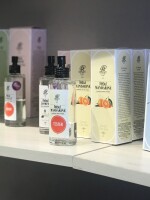STEVE INSKEEP, HOST:
The roar of artillery shells awoke residents of the Syrian city of Homs again today. The Syrian army is pounding the opposition-held neighborhood known as Baba Amer. Yesterday's attacks killed dozens of people, including two Western journalists and a leading Syrian citizen journalist. Conditions are becoming more desperate, as NPR's Peter Kenyon reports from neighboring Beirut.
PETER KENYON, BYLINE: For nearly three weeks now, Syrian forces have closed off Baba Amer and pounded the trapped residents with what London Times journalist Marie Colvin described hours before she was killed, as a relentless and indiscriminate barrage.
Colvin's body was found with that of French photographer Remi Olchik, not long after Syrian video blogger Rami al-Sayed was killed. The deaths followed closely that of New York Times correspondent Anthony Shadid, who collapsed and died while trying to leave Syria without the government's knowledge. Efforts are ongoing to bring two more wounded Western journalists to safety.
The deaths have made it that much harder to get the news from Homs, a fact not lost on the volunteer doctor who spoke in this YouTube video while standing over what appeared to be Rami al-Sayed's body.
UNIDENTIFIED MAN: (Through translator) Rami was killed because he was transmitting the true picture of Baba Amer. Rami was killed because he was filming the truth. A thousand Ramis will come forward, with God's permission. Life doesn't stop with Rami.
(SOUNDBITE OF GUNFIRE)
KENYON: Activists in Baba Amer are beginning to suspect, however, that the regime of President Bashar Al-Assad doesn't much care whether life goes on there or not. One who uses the name Omar told NPR, via the Internet, that today began with another barrage of shells. He said it's hard to imagine how bad it is. Only the most intrepid or those trying to document the deaths or care for the wounded are venturing outdoors.
OMAR: (Through translator) I don't know, yesterday we recovered maybe 60 bodies. We couldn't move the rest from under the rubble. We are appealing to the Red Cross, the human rights groups, come to Baba Amer and see this carnage with your own eyes. It's horrible.
KENYON: Another activist, known as Abu Hama, said what water there is comes from muddy old wells, and for the wounded, whose numbers he said reached 150 yesterday alone, there are only three doctors and not much else.
ABU HAMA: (Through translator) There are no bandages, no gloves left, no oxygen. The room we used to call an operating room isn't usable anymore. When the wounded come in, we can put in a few stitches, maybe extract a bullet. There's no anesthesia. We watch them die, and we can't do anything.
KENYON: In addition to the civilians under fire in Homs, there are also fighters, some affiliated with the loosely organized and lightly armed Free Syrian Army. The government describes them as armed gangs that must be dealt with.
UNIDENTIFIED GROUP: (Chanting in foreign language)
KENYON: But even as residents of Baba Amer face a ferocious assault, in other neighborhoods of Homs, residents continue to come out in the street and defy the regime. Activists reported at least two large demonstrations in Homs last night, scenes repeated in several other cities around Syria.
The international reaction remains muddled. Saudi King Abdullah was quoted as telling the Russian president that dialogue about what is happening in Syria is futile. Russia is not planning to attend the friends of Syria meeting set for tomorrow in Tunisia.
The Syrian government, meanwhile, says a vote on constitutional reforms will happen Sunday. Unless things change on the ground in Homs very quickly, residents say there's not much chance of anyone there getting to the polls, even if they wanted to.
Peter Kenyon, NPR News, Beirut.
(SOUNDBITE OF MUSIC)
INSKEEP: This is NPR News. Transcript provided by NPR, Copyright NPR.


